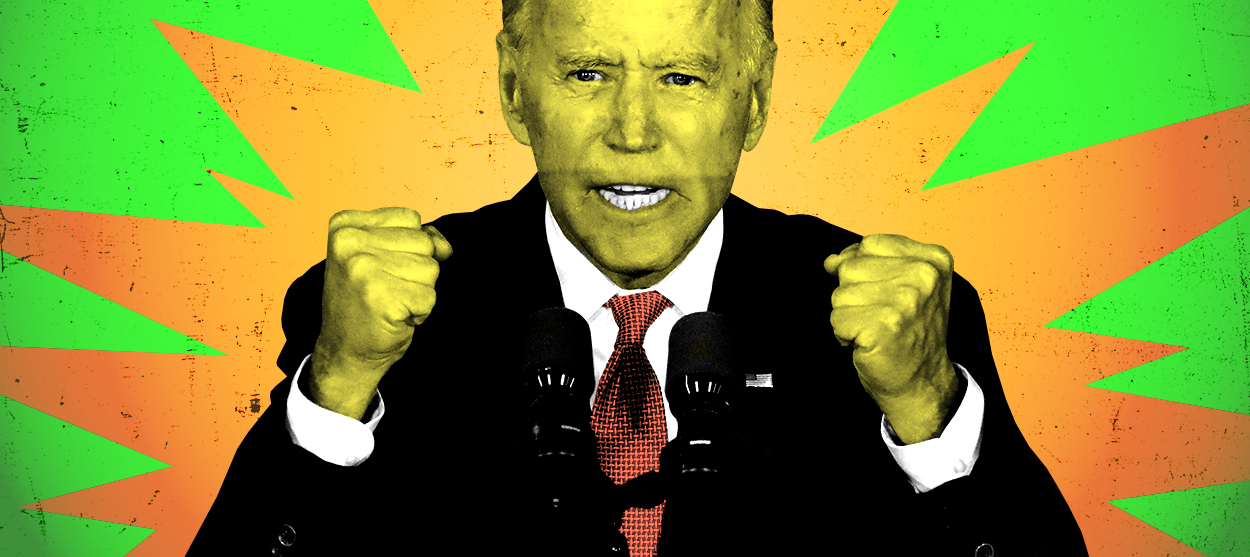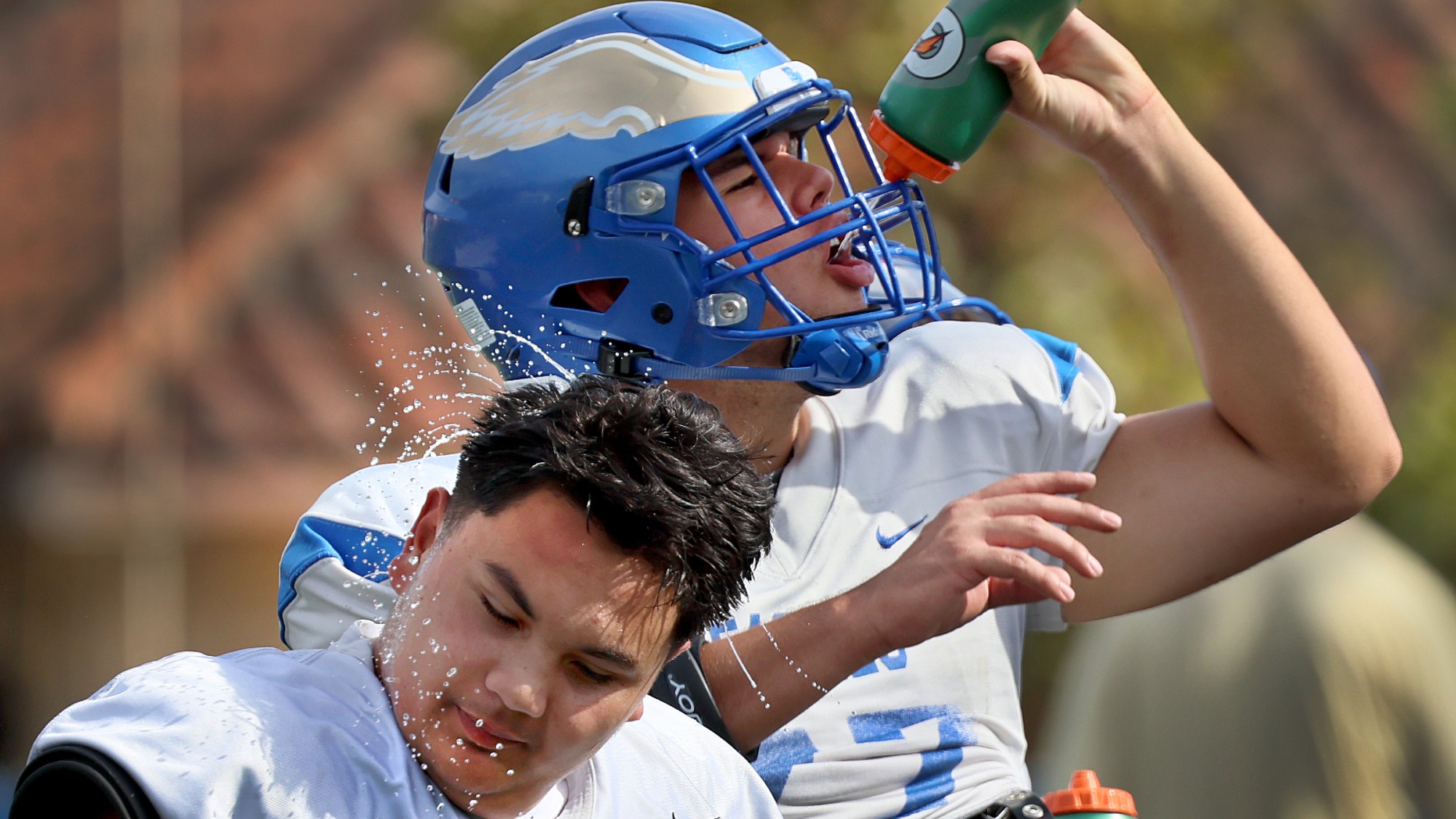Joe Biden's stunning surge
His Super Tuesday victories resurrected his candidacy — and shredded a series of common political assumptions in the process


A free daily email with the biggest news stories of the day – and the best features from TheWeek.com
You are now subscribed
Your newsletter sign-up was successful
By the time all the Super Tuesday votes are counted across 14 states, former vice president Joe Biden and Vermont Sen. Bernie Sanders will likely be neck-and-neck in the delegate count, or one might have slightly bested the other. But the biggest story of the night by far will have been Biden's stunning surge.
One month ago, Biden fell off a polling cliff, plummeting from the high 20s in national polls to the mid-teens. He finished fourth in Iowa and came in a distant fifth in New Hampshire. No modern candidate with results like that has gone on to win a presidential nomination. He seemed dead in the water. And after Sanders ran away with the Nevada caucuses, it seemed for a few days like the Democratic Party was preparing to nominate a democratic socialist with the self-financed campaign of billionaire Michael Bloomberg the only thing that could stop him.
But all that has changed in the past week. From South Carolina Rep. James Clyburn's endorsement of Biden last Wednesday to Biden's resounding 48.4 percent victory in the state's primary on Saturday to former South Bend, Indiana Mayor Pete Buttigieg and Minnesota Sen. Amy Klobuchar dropping out of the race and endorsing Biden over the intervening days to a series of strongly favorable polls on Monday and Tuesday, all signs pointed toward a dramatic turn of events. And on Tuesday night that sense was verified in spades.
The Week
Escape your echo chamber. Get the facts behind the news, plus analysis from multiple perspectives.

Sign up for The Week's Free Newsletters
From our morning news briefing to a weekly Good News Newsletter, get the best of The Week delivered directly to your inbox.
From our morning news briefing to a weekly Good News Newsletter, get the best of The Week delivered directly to your inbox.
Biden didn't just win in the South — in Alabama, Arkansas, Tennessee, North Carolina, and Virginia — where he was widely expected to do very well with African American voters, as he had in South Carolina. He also prevailed in Oklahoma, Minnesota, and Massachusetts, showing he could do well in states with whiter electorates in very different regions of the country. As of midnight, he was also fighting Sanders to a virtual tie in Maine and had begun to pull into the lead in Texas.
Measured in delegates, Sanders was likely to have a good night as well — with wins in Colorado, Utah, and the biggest delegate prize of them all, California. On the other hand, after such an unexpectedly robust showing on Super Tuesday, Biden would be a strong favorite in several upcoming contests in large states over the next two months, including Florida, Ohio, Illinois, Pennsylvania, and New York. Biden accomplished what appeared to be impossible just over a week ago: he brought himself back from the dead.
But that's not all. Biden's unexpected resurrection also shredded a series of assumptions that have long prevailed among pundits and other political prognosticators.
Biden showed that Iowa and New Hampshire don't need to matter at all. We've seen candidates skip Iowa, fail to win New Hampshire, and then go on to secure their party's nomination. But competing in both, finishing fourth and fifth, and then ending up the frontrunner? That's unheard of — and it calls into question not just whether those two small and unrepresentative states should come first on the calendar, but whether the way they vote deserves outsized attention at all.
A free daily email with the biggest news stories of the day – and the best features from TheWeek.com
Biden also showed that money doesn't matter as much as many of us tend to assume it does. The Biden campaign was outspent 7-to-1 by the Sanders camp and an astonishing 100-to-1 by the Bloomberg juggernaut in the states that competed on Super Tuesday — and yet Biden beat Sanders in lots of places and bested Bloomberg almost everywhere.
The same could even be said for campaigning itself. Biden barely campaigned at all in several of the states he won on Tuesday — and he had just one field office in the state of Virginia, which he won with 53.3 percent of the vote! (Sanders came in second there with 23.1 percent.)
But perhaps most surprising of all after the Trump insurgency of 2016 and the apparent Democratic chaos of the past couple of months, Biden's remarkable reversal of fortune this past week shows that the party decides presidential nominations after all — or at least it can still do so when the stakes are sufficiently high and leading members of the party resolve to intervene. Tuesday's results simply couldn't have happened had the institutional party not engaged in an astoundingly rapid act of consolidation — against Sanders and in favor of Biden.
Whatever the final tally turns out to be, we will be learning the lessons of Joe Biden's spectacular comeback on Super Tuesday 2020 for a long time to come.
Damon Linker is a senior correspondent at TheWeek.com. He is also a former contributing editor at The New Republic and the author of The Theocons and The Religious Test.
-
 Political cartoons for February 20
Political cartoons for February 20Cartoons Friday’s political cartoons include just the ice, winter games, and more
-
 Sepsis ‘breakthrough’: the world’s first targeted treatment?
Sepsis ‘breakthrough’: the world’s first targeted treatment?The Explainer New drug could reverse effects of sepsis, rather than trying to treat infection with antibiotics
-
 James Van Der Beek obituary: fresh-faced Dawson’s Creek star
James Van Der Beek obituary: fresh-faced Dawson’s Creek starIn The Spotlight Van Der Beek fronted one of the most successful teen dramas of the 90s – but his Dawson fame proved a double-edged sword
-
 The ‘mad king’: has Trump finally lost it?
The ‘mad king’: has Trump finally lost it?Talking Point Rambling speeches, wind turbine obsession, and an ‘unhinged’ letter to Norway’s prime minister have caused concern whether the rest of his term is ‘sustainable’
-
 The billionaires’ wealth tax: a catastrophe for California?
The billionaires’ wealth tax: a catastrophe for California?Talking Point Peter Thiel and Larry Page preparing to change state residency
-
 Bari Weiss’ ‘60 Minutes’ scandal is about more than one report
Bari Weiss’ ‘60 Minutes’ scandal is about more than one reportIN THE SPOTLIGHT By blocking an approved segment on a controversial prison holding US deportees in El Salvador, the editor-in-chief of CBS News has become the main story
-
 Memo signals Trump review of 233k refugees
Memo signals Trump review of 233k refugeesSpeed Read The memo also ordered all green card applications for the refugees to be halted
-
 Has Zohran Mamdani shown the Democrats how to win again?
Has Zohran Mamdani shown the Democrats how to win again?Today’s Big Question New York City mayoral election touted as victory for left-wing populists but moderate centrist wins elsewhere present more complex path for Democratic Party
-
 Millions turn out for anti-Trump ‘No Kings’ rallies
Millions turn out for anti-Trump ‘No Kings’ ralliesSpeed Read An estimated 7 million people participated, 2 million more than at the first ‘No Kings’ protest in June
-
 Democrats: Harris and Biden’s blame game
Democrats: Harris and Biden’s blame gameFeature Kamala Harris’ new memoir reveals frustrations over Biden’s reelection bid and her time as vice president
-
 ‘We must empower young athletes with the knowledge to stay safe’
‘We must empower young athletes with the knowledge to stay safe’Instant Opinion Opinion, comment and editorials of the day
